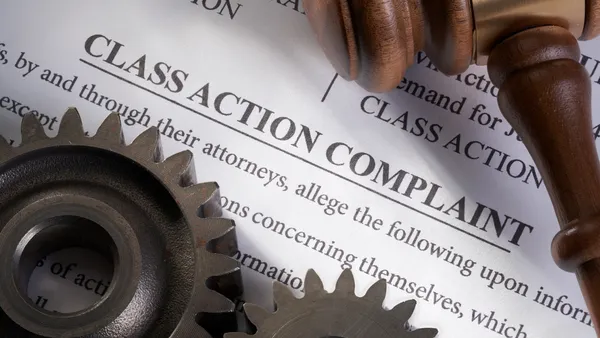Dive Brief:
-
Only 51% of companies back up their reports on sustainability with assurance, a study of 1,400 companies by the International Federation of Accountants (IFAC) found, warning that low-quality assurance is an "emerging investor protection and financial stability risk.”
-
Ninety-one percent of companies across 22 jurisdictions provide some level of reporting on their environmental, social and governance (ESG) performance, the IFAC said, noting that reporting standards are inconsistent and “assurance practice needs to mature alongside the reporting.”
-
“For those that do obtain assurance, it is often being provided by consultants or others, and not by independent professional accountants,” IFAC said.
Dive Insight:
CFOs considering ways to measure ESG performance confront a patchwork of several different reporting systems that vary in scope and depth of detail.
Companies in the U.S. and Germany most commonly use a system created by the Global Reporting Initiative, while their counterparts in the U.K. and France favor the United Nations Sustainable Development Goals, IFAC found.
Several government and industry groups worldwide are trying to harmonize the inconsistent systems. In the U.S., the Securities and Exchange Commission (SEC) is considering mandating standards for company disclosures on climate risk.
“Investors representing literally tens of trillions of dollars of assets under management are looking for consistent, comparable, decision-useful information to determine whether to invest, sell, or make a proxy vote one way or another,” SEC Chair Gary Gensler said yesterday.
SEC staff will recommend governance, strategy and risk management practices related to climate risk, and determine whether metrics such as greenhouse gas emissions are relevant for investor consideration, Gensler said.
The SEC in April underscored the need for high-quality assurance and standards for ESG performance by issuing a “risk alert” that some investment advisers, investment companies and private funds may have misguided investors about their approach to sustainable investing.
The agency warned of potential hazards from a “lack of standardized and precise ESG definitions.” It found in an examination that some investment firms lacked sufficient policies and procedures for sustainable investing, provided “weak or unclear” documentation for ESG-related decisions and pursued compliance efforts that did not appear to safeguard against flawed disclosures or marketing information.
The SEC identified “some instances of potentially misleading statements regarding ESG investing processes and representations regarding the adherence to global ESG frameworks,” according to a review by the Division of Examinations.
IFAC called on accountants to “rise to the occasion” and help improve the quality of sustainability assurance.
“With investors increasingly incorporating sustainability matters into their asset allocation decisions, low-quality sustainability assurance is presenting a significant, global investor protection issue,” IFAC said in the report created in conjunction with the Association of International Certified Professional Accountants and the Chartered Institute of Management Accountants.
“If the status quo was ever acceptable, it certainly is not now.”

















